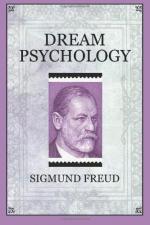It will hardly be worth while to take up the historical significance of dreams as a special subject. Where, for instance, a chieftain has been urged through a dream to engage in a bold undertaking the success of which has had the effect of changing history, a new problem results only so long as the dream, regarded as a strange power, is contrasted with other more familiar psychic forces; the problem, however, disappears when we regard the dream as a form of expression for feelings which are burdened with resistance during the day and which can receive reinforcements at night from deep emotional sources. But the great respect shown by the ancients for the dream is based on a correct psychological surmise. It is a homage paid to the unsubdued and indestructible in the human mind, and to the demoniacal which furnishes the dream-wish and which we find again in our unconscious.
Not inadvisedly do I use the expression “in our unconscious,” for what we so designate does not coincide with the unconscious of the philosophers, nor with the unconscious of Lipps. In the latter uses it is intended to designate only the opposite of conscious. That there are also unconscious psychic processes beside the conscious ones is the hotly contested and energetically defended issue. Lipps gives us the more far-reaching theory that everything psychic exists as unconscious, but that some of it may exist also as conscious. But it was not to prove this theory that we have adduced the phenomena of the dream and of the hysterical symptom formation; the observation of normal life alone suffices to establish its correctness beyond any doubt. The new fact that we have learned from the analysis of the psychopathological formations, and indeed from their first member, viz. dreams, is that the unconscious—hence the psychic—occurs as a function of two separate systems and that it occurs as such even in normal psychic life. Consequently there are two kinds of unconscious, which we do not as yet find distinguished by the psychologists. Both are unconscious in the psychological sense; but in our sense the first, which we call Unc., is likewise incapable of consciousness, whereas the second we term “Forec.” because its emotions, after the observance of certain rules, can reach consciousness, perhaps not before they have again undergone censorship, but still regardless of the Unc. system. The fact that in order to attain consciousness the emotions must traverse an unalterable series of events or succession of instances, as is betrayed through their alteration by the censor, has helped us to draw a comparison from spatiality. We described the relations of the two systems to each other and to consciousness by saying that the system Forec. is like a screen between the system Unc. and consciousness. The system Forec. not only bars access to consciousness, but also controls the entrance to voluntary motility and is capable of sending out a sum of mobile energy, a portion of which is familiar to us as attention.




